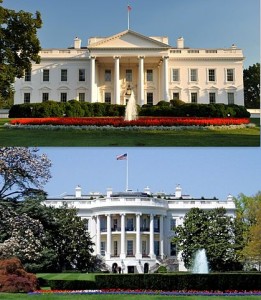Addendum: In order to grasp just how destructive mass immigration, in concert with state-enforced multiculturalism, is to social capital take a look at this British poll. As you’ll notice, people living in Northern Ireland-the part of the UK which has been riven by sectarian conflict for over a century-trust their neighbors more than those living in a post-English London. Food for thought.
One of the chief misconceptions about my immigration views is that they’re born of willful intransigence. The conceit that my political philosophy was shaped years ago-true, to a large degree-and has been unyielding in the face of overwhelming evidence which logically refutes it-completely baseless-is surprisingly widespread among my critics. The truth is that I’m actually desperate to be persuaded, to be convinced that open borders is somehow a desirable-or even workable-state of affairs.
Admitting that you’re wrong, especially about sincerely, long-held convictions, can be psychically devastating for some individuals. One need only read David Horowitz’s disturbing memoir Radical Son to get a sense of how traumatic reevaluating your core ideological beliefs can be to a human being. That said, I am not by nature an ideologue. My identity and my sense of self worth are not wrapped up in the outcome of a particular domestic or international debate. Although not a consequentialist, I do accept reality as it is, which is why I find the intellectual defense of mass, 3rd world immigration to the West so utterly unconvincing.
I want to be persuaded that I’m wrong, but over the past 2 decades I’ve yet to encounter an even minimally persuasive argument explaining why I am. The most compelling defense of open borders I’ve heard was offered by Julian Castro, the son of a ’60s Chicana militant whose children have been able to profit from the political cachet of faux multiculturalism and our country’s drastically altered demographics. Empty suit though he is, at least he had a rudimentary understanding of the issue being discussed, unlike almost every open borders libertarian I’ve tried to engage on this subject. To cite just one example of the fundamental ignorance they’re operating from, the writer David Marcus routinely extols the beauty of Ellis Island immigration in cliched essays, despite being blissfully unaware of the fact that almost all non-white immigration was prohibited during this halcyon period of American history.
Yevgeniy Feyman is a much more informed interlocutor, yet I came away from his discussion at The Irish Exit this past week with my beliefs, vis-a-vis immigration, fundamentally unchanged. Although an expert in health care policy, Mr. Feyman has a keen interest in the subject of immigration, which he believes should be unfettered. Echoing many of the same arguments used by open borders advocate Bryan Caplan-whose work he referenced-he asserted that there is an ethical and utilitarian case for unrestricted immigration to the West, neither of which I found terribly convincing.
One of my main problems with the latter argument was his insistence upon using gross domestic product as a proxy for economic growth and wealth creation, something that is genuinely perplexing coming from an ostensible proponent of free markets. According to Feyman, economists have postulated a 60% growth in GDP if Western nations completely opened their borders, while a 140% increase would result from global immigration restrictions being completely removed. Even if we were to accept these fantastic claims, it’s far from certain that this would be a good thing for our economy. Even the thousands of largely illiterate, unskilled Somalis imported to the interior of this country collectively boost our GDP. However, I’m sure that serves as scant comfort to the taxpayers forced to support their intergenerational welfare.
Contrary to Feyman’s assertions, immigrants use welfare programs at a greater rate than natives, as well as previous generations of immigrants. This was true in 1996 and it’s true today, despite the meteoric rise in American natives’ exploitation of the social safety net. The only reason the disparity between the 2 groups isn’t greater is because there are a host of programs to which illegal aliens are debarred, a distinction which would be erased were amnesty to be enacted as it’s currently envisioned. The idea that you can’t simultaneously take advantage of welfare programs while working is another myth promulgated by open borders advocates.
What’s more, even though most immigrants come to the United States at the peak of their earning power, one-eighth of the immigrants to this country are over the age of 55! In other words, less than a decade from retirement. Although most of these immigrants will never collect Social Security checks, as the speaker pointed out during his talk, they will still be eligible to take advantage of SSI, a program that is hemorrhaging money, shows no signs of being reformed, and whose costs will continue to soar well into the future.
Feyman seemingly praised the mid-90s efforts to “fence in” welfare use by legal immigrants, efforts now categorically rejected by the presumptive Democratic nominee it should be noted, even as he acknowledged that these attempts at reducing the social and economic costs of immigration had largely failed. Even so, he insisted that these barriers would need to be reintroduced under his proposed scheme of open borders. Why welfare restrictions would be more viable in an electorate with tens of millions more unskilled, welfare-dependent, enfranchised immigrants than it was during the Clinton administration was a question that remained unanswered.
The subject of crime proved similarly elusive, as the crime rate of 1st generation immigrants was touted as definitive proof that open borders would be a panacea, even as Feyman conceded that 2nd generation immigrants had a crime rate identical to, and in some instances exceeding, that of Americans. In a remarkable feat of rhetorical jujitsu, this unpleasant fact was used as a data point IN FAVOR of unfettered immigration, proving as it does that immigrants are assimilating to American culture. Why we should be comforted that foreign gangs which were heretofore unknown in the United States are proliferating, and targeting Americans for extermination, is another question that begs to be answered.
Furthermore, the astronomical crime rate among illegal aliens was only briefly alluded to-and dismissed-during this lecture. Even if you ignore the incalculable human cost of our government’s sanction of criminal aliens, the fiscal cost is staggering. While 2 billion dollars might seem like chump change to a federal government that burns taxpayer wealth at a clip which would make a Saudi prince blush, it’s an oppressive burden to the states and municipalities which have to bear nearly the entire bill. This doesn’t even touch upon the fact that nearly 37% of federal prison sentences in Fiscal Year 2014 involved criminal aliens, let alone the impact of criminal immigrants overseas.
Interestingly, the health care cost of having such a large immigrant population was never broached, despite it being-along with the education-the largest economic burden this group imposes upon state and local governments. A burden which will only increase as the population of immigrants-both illegal and legal-expands, as the rapidly collapsing state of California illustrates.
But even if all of these economic and social metrics supported Yevgeniy’s assertions-and, as I’ve tried to illustrate, they do not-he would still be wrong from a philosophical standpoint. For his proposals are not consonant with liberty as its commonly understood, and they’re certainly not pragmatic, by his own definition. They would eliminate the ability to freely associate and to discriminate, despite these being inherent features of both libertarianism and our republic as it was traditionally conceived.
It’s not surprising then that the only political philosopher he invoked during his lecture was not a libertarian in any sense of the word, but John Rawls, a man whose ideas are the antithesis of those espoused by the Founders. His emphasis on the difference principle and the egalitarian case for opening our borders to the developing world demonstrates the utopian nature of this cause. The idea that inhabitants of third world nations are entitled to the West’s wealth-and that Western societies have no right to deny them-is a popular notion among open borders libertarians, and finds its most ardent advocate in the form of Bryan Caplan, a person who, a la Kevin Williamson, would rather see Americans die than deny the wishes of hundreds of millions of foreign nationals. Call it the Make-A-Wish Foundation for the global village.
The hermetic nature of the discussion among open borders advocates can be seen in the comparisons made between immigration restrictions and government-imposed segregation during the Jim Crow Era. This was another trope invoked by Mr. Famin in order to defend the idea of open borders, one which has its roots in the Immigration and Naturalization Act of 1965, which was enacted on a wave of specious comparisons between the struggle of black Americans for civil rights and the desires of foreigners in the third world to relocate to the United States. While correctly citing Robert Putnam’s study demonstrating the negative impact multiculturalism and open borders have on social cohesion, civic trust, and private, communal associations, from that he extrapolated that opponents of open borders must also support segregation along color lines.
There are so many flaws in this analogy that it would be difficult to enumerate them all, so I’ll highlight one of the most glaring. Namely, while Americans have Constitutional, civil rights to equal protection under the law, there is no comparable right for non-Americans to immigrate, settle and exploit the benefits extended to American citizens. It bears repeating that the men who created the framework for our system of government were deeply skeptical of the sorts of free immigration schemes proposed by the likes of Caplan et. al.
Another fundamental problem with this chain of reasoning is the arrogant assumption that the cultures of North America, Europe, and Australia somehow need moral improvement-provided, of course, by an unceasing stream of migrants from the third world. Beyond the obvious paradox at work in this formulation, there is the ahistorical nature of this assertion. It presumes that we don’t already have ample evidence from numerous countries that third world immigration to the West is destructive, not simply eroding the public’s trust in its leaders-which is a good thing-but erasing the very capacity for self-governance.
But even if there were no empirical evidence to support our position, the burden of proof would still be on individuals like Yeveniy Famin to prove that their stance is correct. When someone makes extraordinary claims on behalf of an untested idea that will dramatically alter the status quo, it’s not incumbent upon his opponents to prove a negative. It’s up to him to demonstrate that his idea will result in a positive improvement for individuals and our society. When I brought up the case of A.Q. Khan, a Pakistani Muslim immigrant who gave us the world’s first Islamic bomb, it wasn’t merely a gotcha question intended to embarrass the speaker or a misguided invocation of the precautionary principle.
There is actually ample evidence that the experiment with Muslim integration in The Netherlands has been a complete failure, and that the cumulative impact of this monumental social change has been decidedly negative for that country and its inhabitants. My point was simply that the adherents to open borders dogmatism couldn’t present a narrative that emphasized a corresponding good that’s resulted from widespread Middle Eastern and North African immigration to Holland. The retort that there are native-born citizens who’ve helped appalling regimes acquire nuclear weapons isn’t quite the devastating rebuttal that its opponents believe it to be. Just like the “there are American scumbags” aphorism, it presumes that just because evil exists we must do nothing within our power to limit our exposure to its most baleful consequences.
This line of reasoning would dictate that a landlord who currently has tenants that are scofflaws and destroy his property allow prospective renters who pose the same threat to live in his building, based upon a rigid devotion to equality. The logical extension of this can be found in Germany, where paying tenants are being evicted in order to make way for refugees, i.e. invaders from the Global South that Angela Merkel, the socialists, and Greens are cultivating as Germany’s new polity.
Open borders is a terrible idea, from both a consequentalist and natural rights perspective. When and if all societies are based upon mutual consent and non-coercion, then by all means, invite whomever you want to live, work, and possibly exploit, your self-contained civilization. I have no problem with Bryan Caplan et. al. inviting downtrodden Haitians or Yemenis to live at his expense, but I vociferously object to them externalizing the costs of their philanthropy to those, like me, who do not share their utopian ideals.








Recent Comments